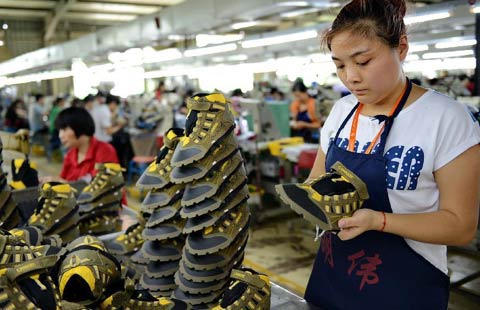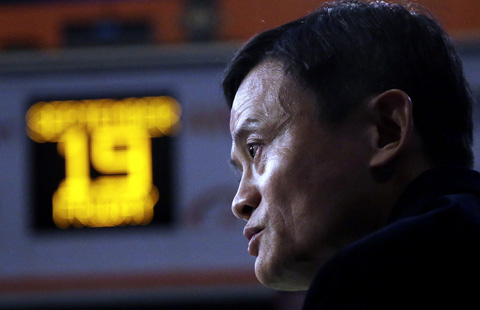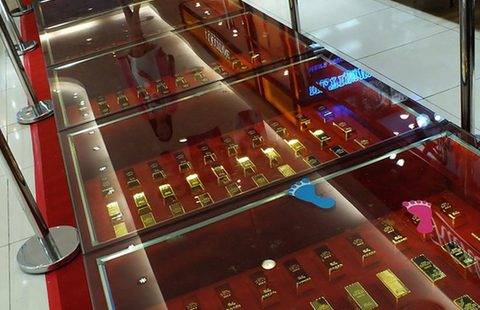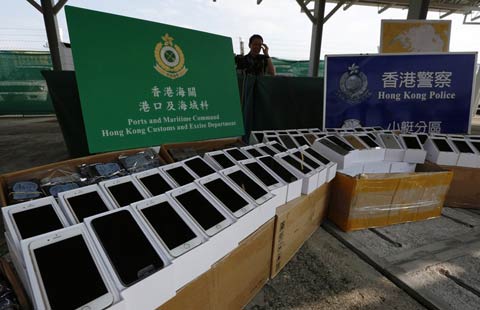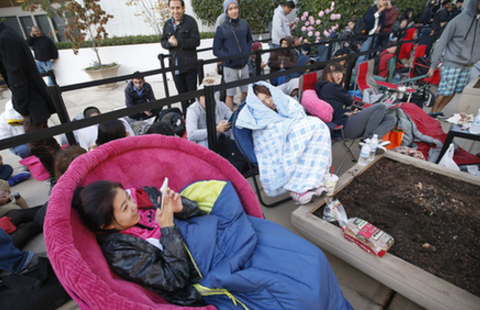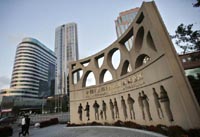Forex reserves see monthly decline
By Wang Xiaotian (China Daily) Updated: 2012-04-25 10:04
Losses in euro-denominated assets, capital outflows blamed for drop
China's foreign-exchange reserves witnessed their first monthly decline in March since last December, mainly due to losses in euro-denominated assets and short-term capital outflows, said analysts.
|
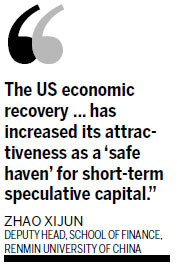 |
The world's largest foreign reserve holdings dropped by $4.69 billion from February to March, according to data released on Tuesday by the People's Bank of China, the central bank.
In the first three months, the holdings increased to $3.3 trillion from $3.18 trillion at the end of December, according to the central bank.
"The fall in reserves in March was probably due to losses in euro-denominated assets because the euro weakened against the US dollar," said Li Jie, director of the Foreign Reserves Research Center at the Central University of Finance and Economics.
And there might be more outflows of speculative capital, he said.
"Otherwise it would be hard to explain why the figure showed a decline, given that the trade surplus and investment inflows were both positive in March, and usually could ensure stable investment earnings each month," Li said.
"And sudden expenditure in foreign reserves at that time is also impossible."
The trade surplus and foreign direct investment are the two major contributors to foreign exchange reserves.
In March, China reported a trade surplus of $5.35 billion, after registering a historic deficit of $31.48 billion in February. In addition, although foreign direct investment into China fell for a fifth consecutive month in March, it was still an inflow of $11.76 billion.
But Zhao Xijun, deputy head of the School of Finance at Renmin University of China, regarded temporary capital outflows as the biggest factor.
He said European lenders' intensive debt write-off operations in March increased their thirst for capital, forcing them to draw back funds globally.
"In addition, the US economic recovery, as indicated by an improved employment situation since the beginning of the year, has increased its attractiveness as a 'safe haven' for short-term speculative capital."
China's foreign reserves declined on a quarterly basis for the first time in more than a decade at the end of last year, falling to $3.18 trillion from $3.2 trillion last September.
The value of the portfolio dropped in November and December, the first consecutive monthly falls since the first quarter of 2009, due to a shrinking trade surplus and accelerating capital outflows.
Zhao said the "small amount" of the fall in foreign reserves was just a normal fluctuation affected by global economic changes, with quite limited influence on domestic liquidity and policy choices.
China's central bank last week indicated more loosening measures were ahead to ensure adequate liquidity in the financial system.
It said it will adjust banking liquidity flexibly, and take "targeted" action by taking the foreign exchange inflows, capital demand, and short-term special factors into account.
Some analysts predicted a reserve-ratio cut this quarter due to the economic slowdown. China's growth in the first quarter slowed to 8.1 percent year-on-year, below market expectations of 8.4 percent.
More fluctuations in foreign reserves can be expected as China's currency moves toward its equilibrium level and the government allows market forces to play a bigger role, which indicates more volatility in both directions, said Chen Daofu, policy research chief of the Financial Research Institute at the State Council Development Research Center.
wangxiaotian@chinadaily.com.cn
- Wuhan scraps housing purchase limit
- 3D printing making inroads in China
- Sri Lanka's tourism earnings reach $1.4b
- MOC bans local "negative list" for foreign investment
- US sets preliminary subsidy rates on imports of dry containers from China
- China punishes 19,289 environmental violations
- No default of Sinosteel loan: ICBC
- Alibaba's shares down for second day
